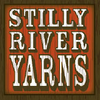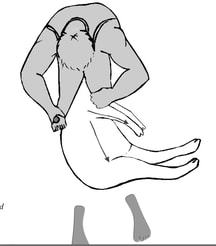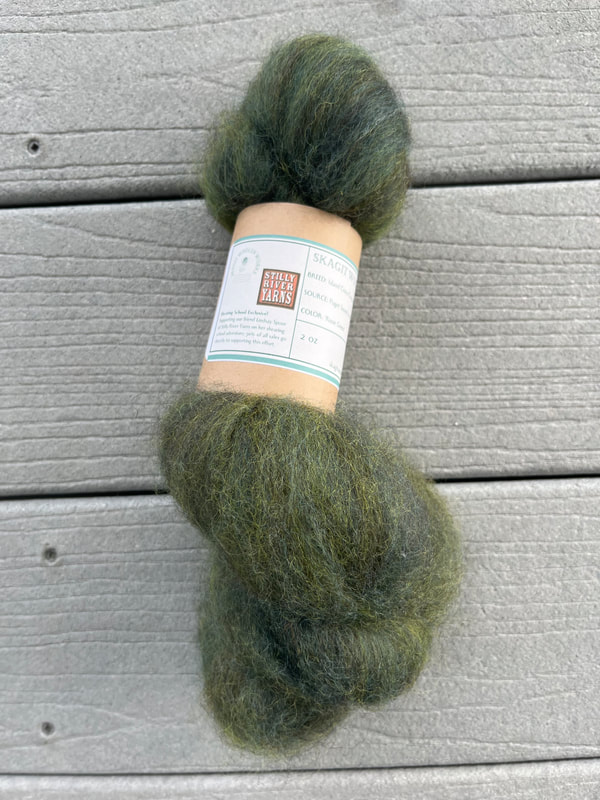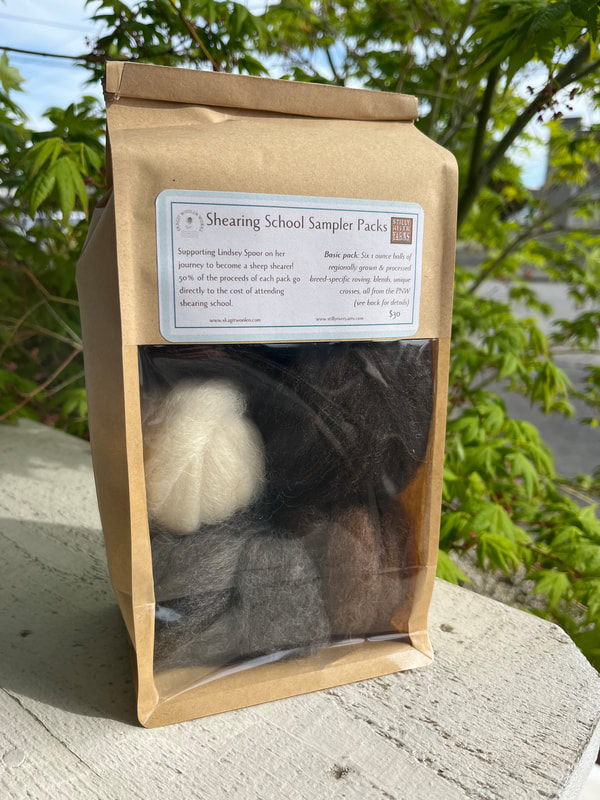|
One unexpected trip to Ohio and one spring break later, I'm hopeful that we have finally arrived at the point where - following this next absence - I will not be away from the shop every third week for the rest of the year. I'm anxious to get back into my normal routine and not worrying about whether or not I remembered to change the answering machine, stop shipments, and the fifty other tiny tasks that have to happen when I'm away from the shop for an extended period of time. But I do have one more week-long absence planned from April 22 - 27 so that I can attend the Washington State Wool Producers' Shearing School in Moses Lake, WA. "Shearing?" you might be saying. "But... you're a YARN shop, not a farm - you've said you don't even have sheep! Why would you do this?" Excellent question! Over the last couple of years, I've fielded a ton of questions from a variety of community members about where they can find shearers - during the lockdown phase of the pandemic, it seems that quite a few folks decided to add sheep to their properties. However, if you're not dialed in to the local 4H or FFA chapters - or if you're not involved in a homesteading or small farming group - you may not know how to go about getting connected with a shearer. And there aren't a ton of shearers available, either. The folks who are available to hire for shearing are usually booked up in advance of the lambing season, and they usually won't travel to individual farms or homes for small-scale shearing - you bring the animals to a central location and have them shorn there for efficiency's sake, then take them home. So you make do with whoever happens to have the equipment - whether or not they have training - and you get the wool hacked off your poor animal, and it sits in a bag because you feel like it's too good to waste... but you have no idea what to do next. So you call the yarn shop. If you ask a certain yarn shop owner about shearing enough, she's going to look into what it requires... and eventually she'll apply, because conversations like the ones outlined above are happening more and more often. AND she's talked with milling colleagues from various cottage mills in the area to see what their take is, and she discovers that THEY are also having these conversations but maybe don't know how to get word out to farmers and shepherds about their processing services. Said yarn shop owner realizes she's in a unique position to bridge that gap, applies for shearing school, and gets into the 2024 class. So. All that to say that I'm going to shearing school in a week, and it's expensive. How's that, you might ask?
Add to that the fact that the shop will be closed for another full week - and that there's no way I can recoup my investment in a single year just by picking up shearing jobs - and it becomes clear that I'm going to need to ask for help in a few different ways. How can you get involved with this effort?
We take this ask VERY seriously. We've always been a full-service yarn shop, but being able to get out in the community to provide responsible, informed shearing services to our local fibershed takes it to a different level. Many of you reading this have shared how important the shop is to you and how important it is to you to support local agriculture and local businesses. Making a purchase or donation, sharing this post or our related social media posts, or even just sharing by word of mouth that there will soon be someone available to help with small-scale shearing are all ways that you can help the shop keep going and help us support colleagues working in various aspects of the local fiber industry.
2 Comments
|
AuthorLindsey Spoor is the owner of Stilly River Yarns in Stanwood, WA. Archives
April 2024
Categories |
Reach out! |
Come visit us at our brick-and-mortar shop in Stanwood!
NEW LOCATION STARTING JULY 16, 2024:
7104 265th St. NW Suite 120 Stanwood, WA 98292 Shop phone: (360) 631-5801 Email: [email protected] Text: (515) 833-0689 |
|
|
Proudly powered by Weebly
Stilly River Yarns LLC
Copyright © 2024
Copyright © 2024




 RSS Feed
RSS Feed